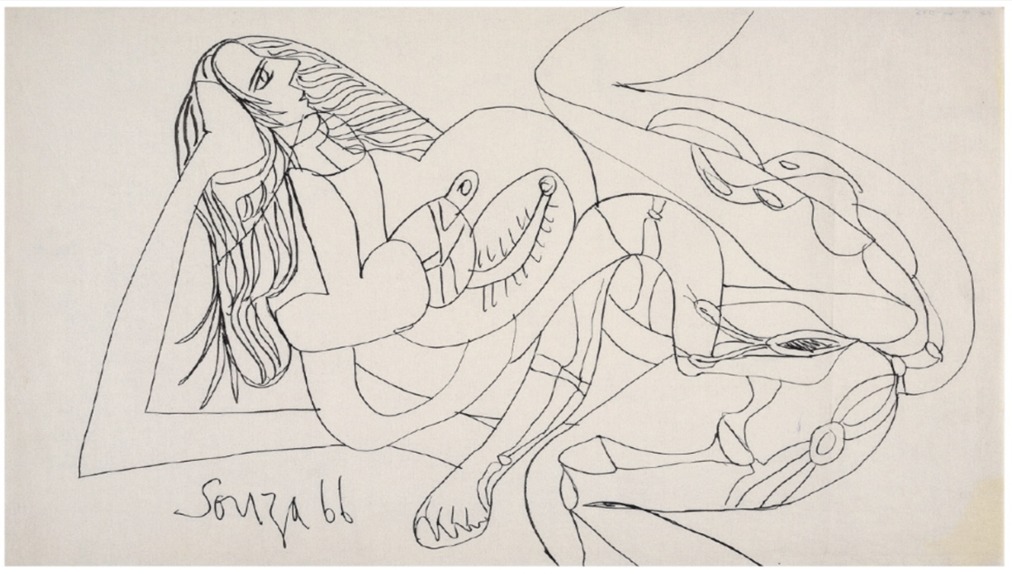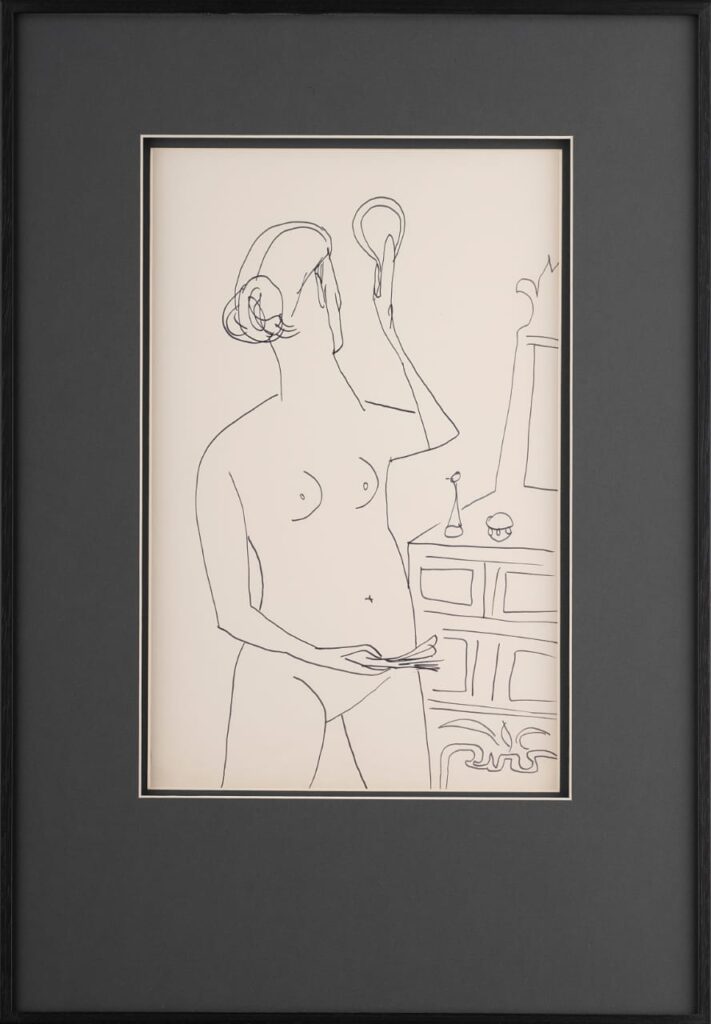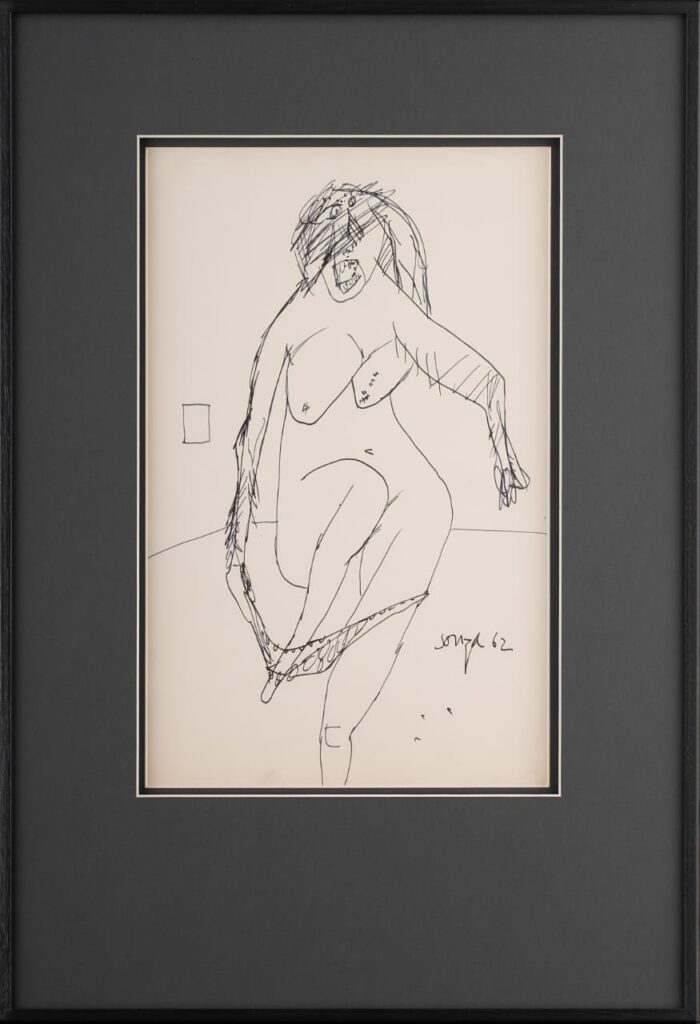F.N. SOUZA
(b. 1924-2002)
F.N. Souza is widely known as one of the founding members of the Progressive Artists Group that revolutionised modern art in India. Being born and brought up in a Catholic family in Goa (a Portuguese colony during that period), Souza found in religious iconography his artistic influences, transforming it into modernist expression. His extensive series of nudes, landscapes and portraits are reflective of experimentation with expressionist qualities influenced by European modernism that were intermixed with the sculptural style of the classical Indian Tradition. His series of female figures are symbolic of the fierceness of his style which used the simple yet aggressive nature of lines as a way to question and subvert conservative authority. His oeuvre was marked by a rebelliousness in thought which comes out vividly in the bold nature of his works.
In 1949, Souza left for London where in the 1950s, he rose to fame with his show at Gallery One in London, at the same time his autobiographical essay, Nirvana of a Maggot, was published in Stephen Spender’s Encounter Magazine. His career attracted critical acclaim across the globe. In 1967, he migrated to New York where he received the Guggenheim International Award. Souza’s works were part of several successful exhibitions around the world. His works are in the collections of the Tate Gallery, London and the National Gallery of Modern Art, New Delhi. His work has also been exhibited at the Gallery Creuze, Paris, in 1954; at Arts 38, London, in 1975 and 1976; at Bose Pacia Modern, New York, in 1998; and Francis Newton Souza Rare Works: 1965-2001 at Galerie 88 in Kolkata. An introspection show ‘F.N. Souza: The Power and the Glory’ was held by Jehangir Nicholson Art Foundation in Mumbai in 2021-22 and some rare works were shown by LATITUDE 28 at Art Mumbai in 2023.


